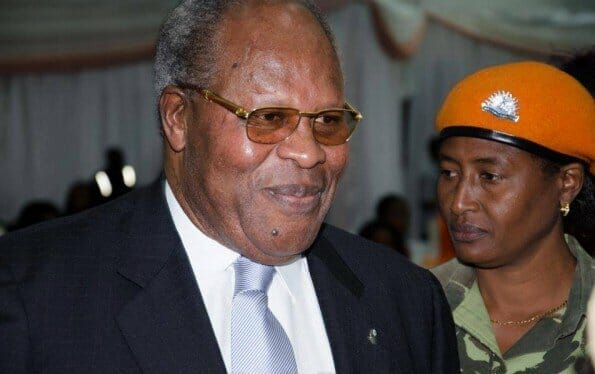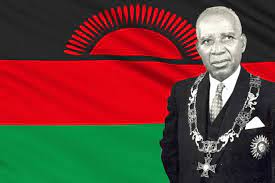All People Everywhere in The World Deserve Their Leaders
With Cedrick Ngalande, PhD
1994 was a year of change. For the first time ever, Malawians went to the polls to choose their leader. By then, the country had been independent for 30 years, and had been ruled by one president all those years. With the end of the cold war, pro-west but undemocratic leaders like Dr Hastings Kamuzu Banda were now under pressure to open up democratically.
It was an interesting time, a time of change. As a very young boy, an avid reader of Boma Lathu magazine, I was very fascinated by Dr. Kamuzu Banda. I thought it would be a mistake to vote him out of power. I remember a conversation I had with my uncle, a supporter of Bakili Muluzi. I asked him why he thought Muluzi would make a good president. You see, as a candidate, Mr. Muluzi never really told anybody how he planned to transform the country. My uncle did not seem to care about that. Bakili loves the people, he insisted.
The next time my uncle visited our home, Muluzi had been president for more than a year. The country was struggling; basic necessities were scare and extremely expensive. My uncle came to ask for financial help from my parents. During our conversation, I asked him whether it was a mistake to vote for Muluzi. His answer was quite unbelievable. “What does bad economy and lack of food have to do Muluzi being president?” These are just signs of the end of the world, he concluded.
It dawned on me that my uncle, genuinely, did not see any connection between the performance of the country and the people who ran it. You cannot blame him. If you go back to our history and traditions, you will notice that our ancestors shared the same philosophy. Chiefs, kings and rules were not really held responsible for the economic welfare of the people. That was God’s responsibility. It was God who brought the rains. If the rains came at the right time and in right amount, you would have a bumper harvest. Hence, good economy. If God did not bring rain in time, or if a village wizard prevented the rains from failing, the economy would suffer. This was not the fault of the leaders. Leaders were there just to facilitate unity and harmony among the people.
Today in 2021, we are far removed from our primitive traditions. But some things have remained the same. The tendency not to associate people with the performance of entities under their leadership still continues. This does not only happen on the presidential level; it also happens in many government departments. Oftentimes when vacancies are announced we are eager to support people we know, or those who come from our families or tribes. We throw our support behind these ‘homeboys’ even in cases where prior record of incompetency or government work politization is quite clear.

When I look back to the first multiparty election, I always wonder why those who wanted change did not go for Chakufwa Chihana. By all accounts, he was the most qualified of the opposition candidates. He was fearless; he had led multinational organizations; and he had backing of the crucial donor community. Could it be that the majority did not vote for him because they were more concerned about tribe than promise of good job performance?
Muluzi’s leadership, even though disastrous economically, was good for Malawi because of his unique ability to navigate the problems that came along with the new multiparty dispensation. But that is not the point here. The point is that he never came out with a solid manifesto and people still voted him into office.
The tendency to pick or support leaders based solely on tribe or relationships is not just Malawian. One can argue, it is African. Recently, when the United States government expressed concerns that the leadership of Dr. Tedros Adhanom Ghebreyesus at World Health Organization (WHO) might have been comprised during the advent of COVID-19, Africans quickly closed ranks. “You know he is from Ethiopia, so we have to protect him.” It was not important that his leadership might have failed to ask tough questions on the origins of COVID-19, a disease that would later victimize a lot of Africans. No. The only thing that was important was that Dr Tedros was from Africa and he had to be protected at any cost.
It has been said that all people everywhere in the world deserve their leaders. It is a harsh statement considering that some nations are reeling under autocratic regimes and others, corrupt leadership. Nevertheless, there is a lot of truth in that saying.

Cedrick Ngalande
I am a strategic engineering executive with the technical breadth necessary to oversee all functions within the engineering team, with proven success in mentoring highly talented and successful engineers who aspire to perform with accountability for achieving their personal best while also meeting or exceeding company goals. I have always represented the company to the highest standards regarding engineering strategy, performance and outlook. My strong background in aerospace engineering, computer programming, stochastic processes and engineering probability is a result of my expertise in space environments with specialties in direct simulations Monte Carlo (DSMC) and computational fluid dynamics (CFD), predictive science, investment and financial engineering. As an effective leader, I also bring a business focus in areas including corporate strategy, project analytics, materials planning, production and procurement. This business acumen is combined with my demonstrated technical tactical leadership. My key strengths include: – Engineering Management – Leadership / Mentor / Team Development – Quantitative / Qualitative Methods – Financial Engineering – DSMC / CFD – Numeric Modeling – Investment Analysis – SAP /ERP
- My Website: https://www.maravipost.com/




